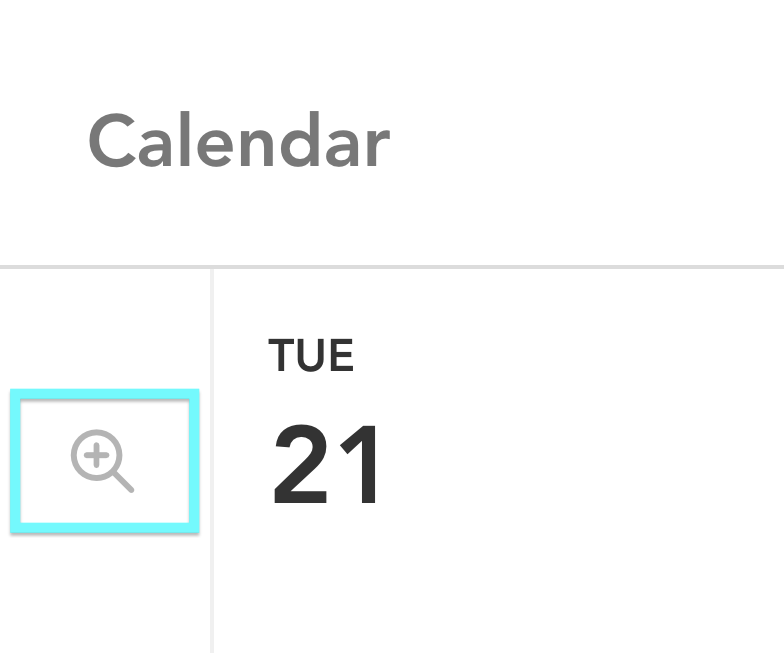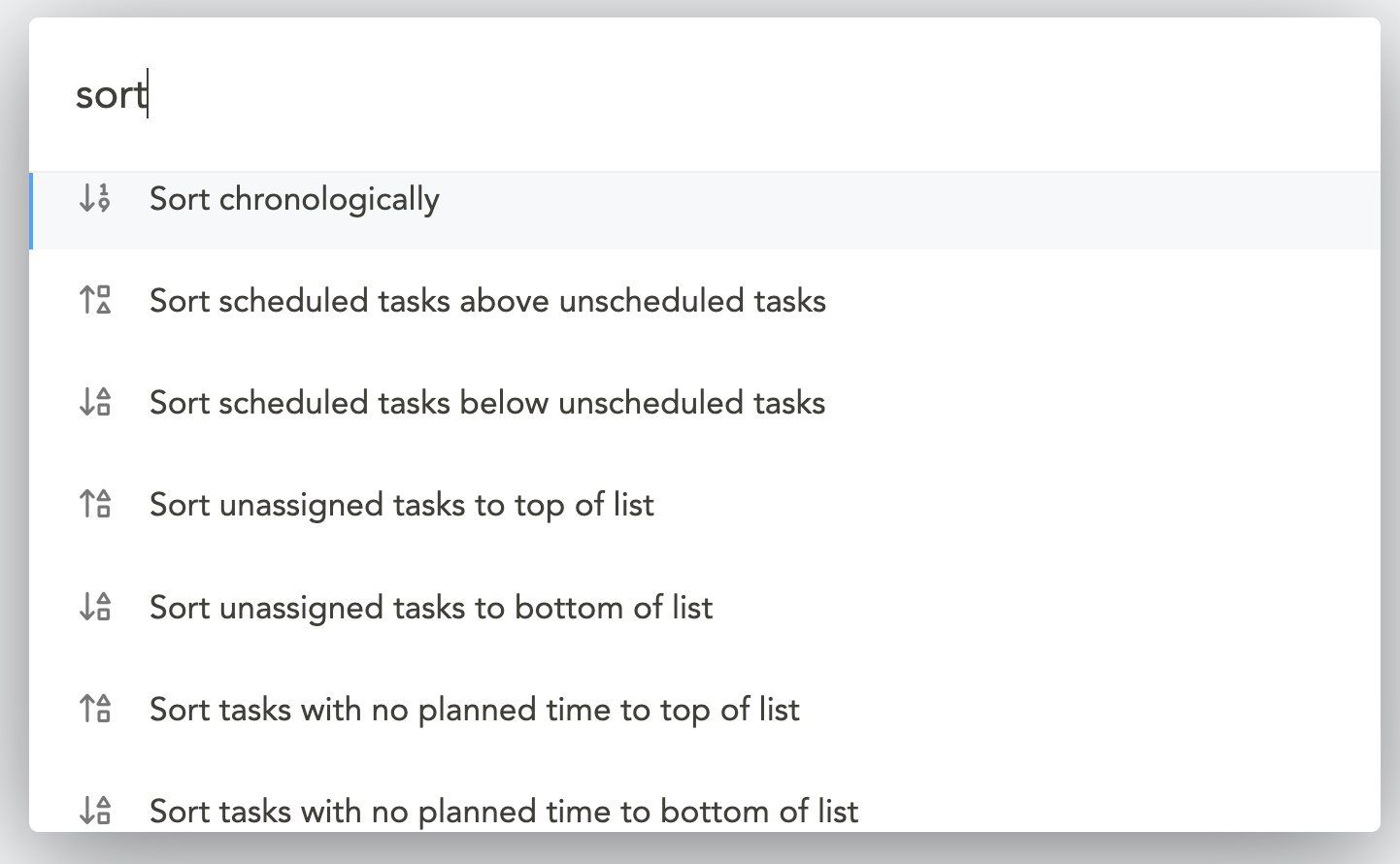FAQs and Pro-Tips
I do want my tasks showing on my Google/Outlook/iCloud calendar
Go to your calendar settings, click on the calendar you want your tasks to show up on, and make it the "Default for tasks" calendar.
Be mindful of linked channels as well. More information here: https://help.sunsama.com/docs/timeboxing-choosing-your-calendar
I don't want tasks showing on my Google/Outlook/iCloud calendar.
Go to your calendar settings, click on the "Sunsama calendar" at the top, and make it the "default for tasks" calendar.
Zooming into your calendar.
From the main dashboard view of the app, you can click the + sign in the top left corner of the calendar view in order to zoom in. If you timebox your tasks, this will give you more real-estate to work with.

On the mobile app, you can zoom in and out by pinching and squeezing the calendar view.
How do I split a task into multiple blocks, or schedule a task across multiple days?
After you timbox a task once, click on the colored timestamp on the task to open the calendar pop out. Use the working sessions pop out to quickly add more blocks or sessions across multiple days. Refer to this page for more information.
Sorting the task list
When you import tasks from the calendar to your task list or timebox a task to the calendar, Sunsama will automatically sort your list for the day chronologically.
You can manually adjust the sorting. For example: if you place a task with no scheduled time between two tasks with start times, Sunsama will try and keep that unscheduled task in the same spot when it auto-sorts your task list.
If you want to order your task list differently from how Sunsama sorts it, you should manually re-order it after timeboxing.
At any point, you can have Sunsama sort your task list chronologically by using a sorting command in the command palette. Access the command palette with keyboard shortcut CMD K (CTRL K on Windows). Then type “sort” to reveal a few options to sort your tasks.
- Sort Chronologically: This will order the selected column's tasks by time and move all your unscheduled tasks to the top or bottom depending on your user preference for "Task rollover position".
If the order of your tasks gets messed up, this is the quickest way to get it back in order. - Sort scheduled tasks above/below unscheduled tasks: Sort your tasks chronologically and move all unscheduled tasks to the top or bottom.
These two options are great for timeboxers who want to quickly identify tasks that still need to be scheduled to the calendar. - Sort unassigned tasks to top/bottom of list: This is a great option to quickly locate your tasks that have not been assigned to a channel.
- Sort tasks with no planned time to top/bottom of list: This will allow you to quickly locate tasks that you have not yet set an estimated planned time for yet.

Should I create a recurring task or repeating calendar event?
Consider using repeating calendar events in your underlying calendar for tasks that are at the exact same time each instance (e.g. meetings). We recommend importing these type of events as tasks.
For tasks whose schedule may be flexible each instance, consider using recurring tasks in Sunsama.
More info here: https://help.sunsama.com/docs/task-management#should-recurring-work-be-a-recurring-task-or-a-recurring-event
Completing a task before it’s scheduled end time
If you schedule a task to your calendar in Sunsama, and you mark that task as complete in Sunsama ahead of the working session's scheduled end time, Sunsama will update the corresponding calendar event.
- For example, if you schedule a task from 1pm to 2pm, and you complete the task at 12pm, Sunsama will delete the future working session(s). The motivation here is to clean up your calendar for you. Since you've marked the task as complete, we assume you will not in fact be working on it from 1pm to 2pm anymore.
- If you schedule a task from 1pm to 2pm, and you complete the task at 1:30pm, Sunsama will update the scheduled event such that it goes from 1pm to 1:30pm for the same rationale.
- We only do this for tasks scheduled to your calendar (and not for calendar events you import to your task list) to avoid potentially sending out calendar updates for meetings.
What happens if I move a task to another day if it's already been timeboxed?
If the task's working session is in the future today, and you move the task to a future day, the working session will be removed.
If the task's working session in the past today, and you move the task to a future day, the working session and a breadcrumb of the task will remain on today's list. This is the same behavior as a timeboxed task rolling over to the next day.
If you move a task to a day before today, all future working sessions will be removed as the task will automatically be marked complete.
If the task is on a future day and timeboxed to that day, and you move the task to any other day, the working session will be removed.
How do I turn off reminders/notifications for my Sunsama tasks?
Find the "Calendar reminders for timeboxed tasks" setting in your Timeboxing settings.
Calendar event color of working sessions
In your account settings, you can have working sessions to show as either:
- Color by channel: to show the event in the color of it's associated channel or context or in the color of it's associated calendar if no channel is set.
- Color by calendar: to show the event in it's associated calendar color regardless of whether it's in a channel or not.
Updated 9 months ago